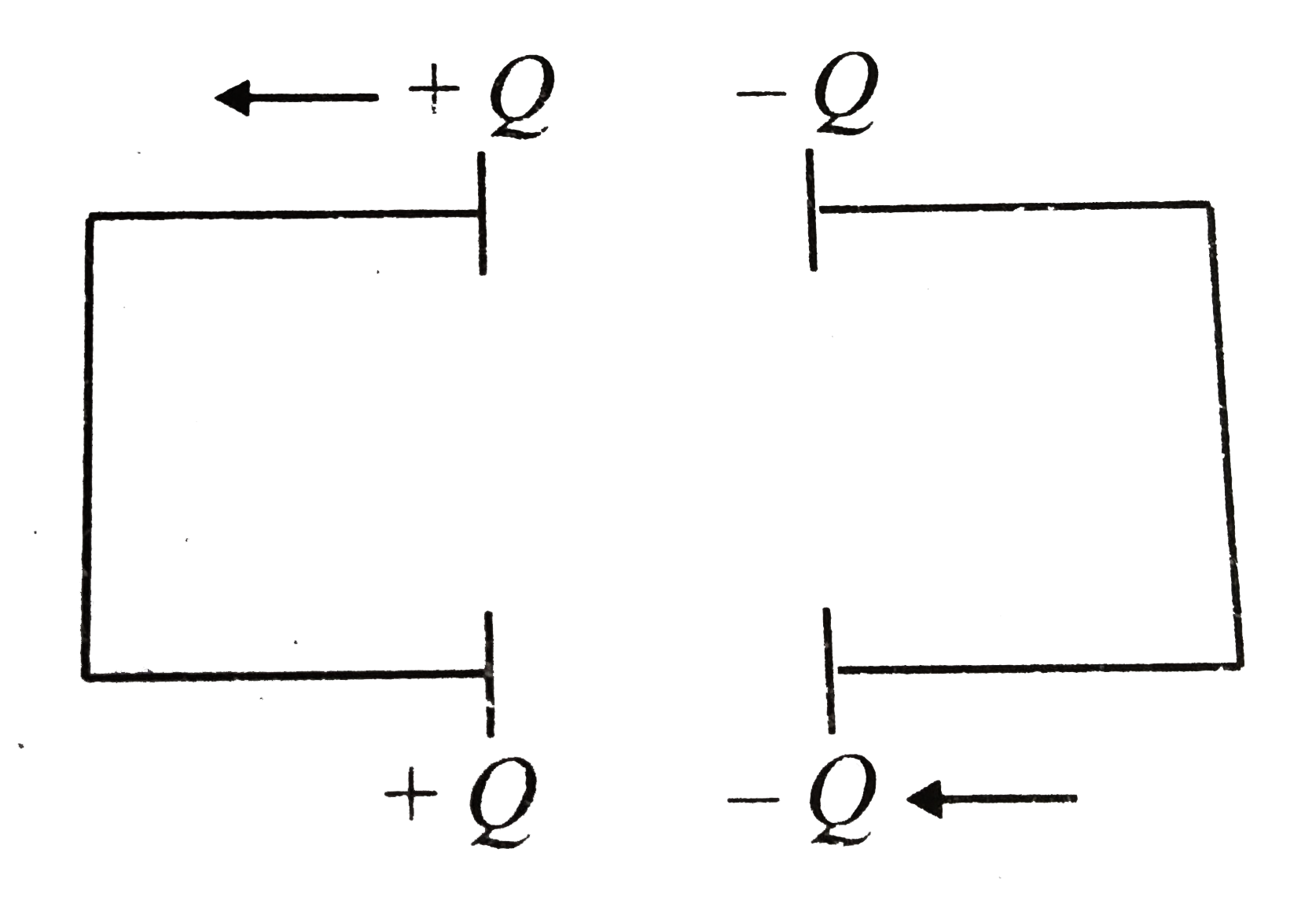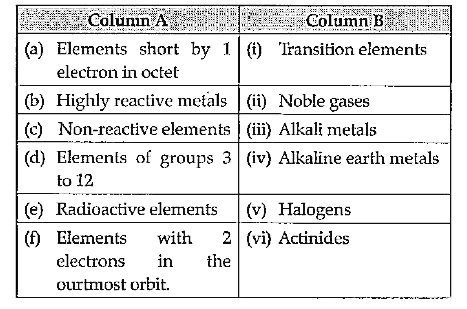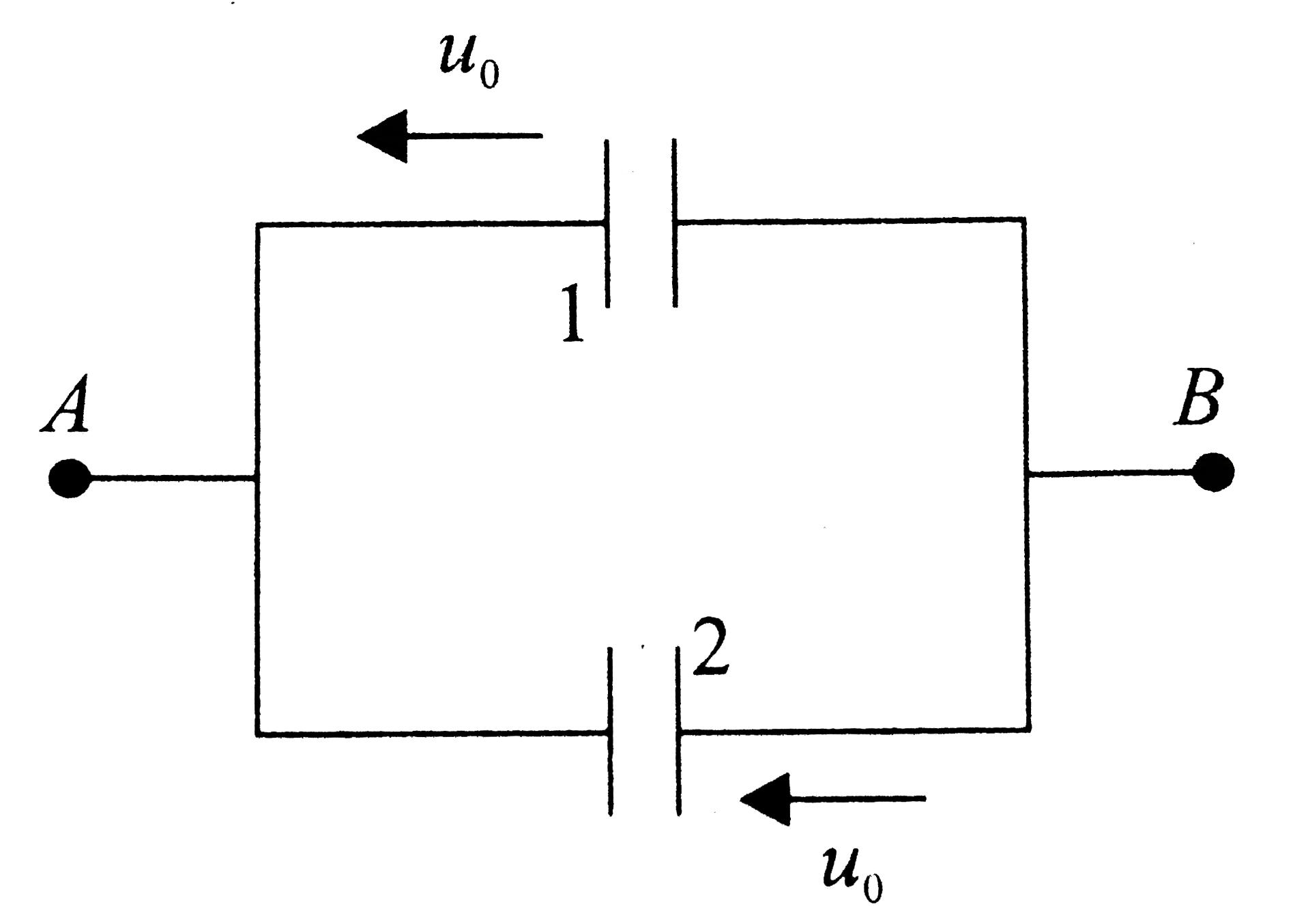A charge Q is imparted to two identical capacitors in paralle. Separation of the plates in each capacitor is d0. Suddenly, the first plate of the first capacitor and the second plate of the second capacitor start moving to the left with speed v, then

charges on the two capacitors as a function of time are Q(d0−vt)2d0,Q(d0+vt)2d0.
charges on the two capacitors as a function of time are Qd02(d0−vt),Qd02(d0+vt).
current in the circuit will increase as time passes on
current in the circuit will be constant.
The correct Answer is:A, D
a.,d.
Leq q1 and q2 be the instantaneous charges on capacitors. Since they are in parallel, then q1C1=q2C2 and q1+q2=Q
C1=ε0Ad0+vt,C2=ε0Ad0−vt
So q1q2=C1C2=d0−vtd0+vt or q2(d0−vtd0+vt)+q2=0
So q2=Q(d0+vt)2d0 and q1=Q(d0−vt)2d0
Hence, option (a) is correct and option (b) is incorrect.
i=−dq1dt or dq2dt or i=Qv2d0
Which does not depend on time. So option (d) is correct and option (c) is incorrect.
Similar Questions
Match the Column A with Column B

View SolutionIf the two plates of the charged capacitor are connected by a wire, then
View SolutionTwo identical capacitors haveng plate separation d0 are connected parallel to each other across the points A and B as shown in. A charge Q is imparted to the system by removed Now the first plate of the first capacitor and the second plate of the second capacitor start moving with constant velocity u0 toward left. Find the magnitude of the current flouing in the loop during this process.
 .
.
View SolutionIf the separation between the plates of a capacitor is 5 mm , then area of the plate of a 3 F parallel plate capacitor is
View SolutionThe potentials of the two plates of capacitor are +10V and −10V. The charge on one of the plate is 40C. The capacitance of the capacitor is
View SolutionA capacitor of capacitor 5.00μF is charged to24.0V and another capacitor of capacitance 6.0μF is charged to 12.0V (a) Find the energy stored in each capacitor .(b)The positive plates of the first capacitor is now connected to the negative plate of the second and vice versa . Find the new charges on the capacitors .(c)Find the loss of electrostatic energy during the process .(d)Where does this energy go?
View SolutionA capacitor of 0.75μF is charged to a voltage of 16 V. What is the magnitude of the charge on each plate of the capacitor ?
View SolutionTwo similar parallel plate capacitors each of capaciti C0 are connected in series The combination is connected with a voltage source of V0. Now, seperation between the plates of one capacitor is increased by a distance d and the separation between the plates of another capacitor is decreased by the distance d2. The distance between the plates of each capacitor was d before the chane in sepration. Then select the correct choice.
View SolutionA capacitor of capacity C is charged to a potential difference V and another capacitor of capacity 2C is charged to a potential difference 4V. The charged batteries are disconnected and the two capacitors are connected with reverse polarity (i.e. positive plate of first capacitor is connected to negative plate of second capacitor). The heat produced during the redistribution of charge between the capacitors will be
View SolutionA parallel plate capacitor is charged and then the battery is disconnected. When the plates of the capacitor are brought closer, then
View Solution
